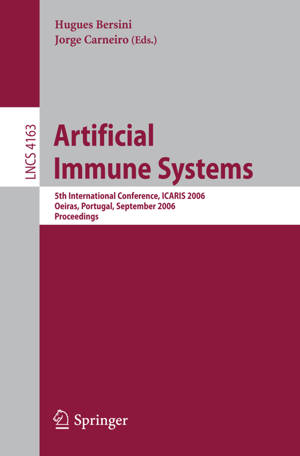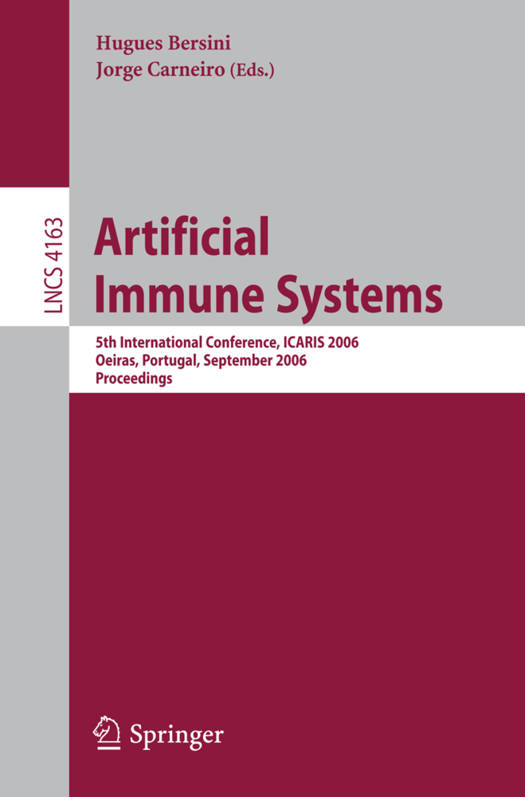
- Retrait en 2 heures
- Assortiment impressionnant
- Paiement sécurisé
- Toujours un magasin près de chez vous
- Retrait gratuit dans votre magasin Club
- 7.000.0000 titres dans notre catalogue
- Payer en toute sécurité
- Toujours un magasin près de chez vous
Artificial Immune Systems
5th International Conference, ICARIS 2006, Oeiras, Portugal, September 4-6, 2006, Proceedings
83,95 €
+ 167 points
Description
ICARIS 2006 is the ?fth instance of a series of conferences dedicated to the comprehension and the exploitation of immunological principles through their translation into computational terms. All scienti?c disciplines carrying a name that begins with "arti?cial" (followed by "life," "reality," "intelligence" or "- munesystem") aresimilarlysu?ering froma veryambiguousidentity.Their axis of research tries to stabilize an on-going identity somewhere in the crossroad of engineering (building useful artifacts), natural sciences (biologyor psychology-- improving the comprehension and prediction of natural phenomena) and t- oretical computer sciences (developing and mastering the algorithmic world). Accordingly and depending on which of these perspectives receives more s- port, they attempt at attracting di?erent kinds of scientists and at stimul- ing di?erent kinds of scienti?c attitudes. For many years and in the previous ICARIS conferences, it was clearly the "engineering" perspective that was the most represented and prevailed through the publications. Indeed, since the o- gin of engineering and technology, nature has o?ered a reserve of inexhaustible inspirations which have stimulated the development of useful artifacts for man. Biology has led to the development of new computer tools, such as genetic - gorithms, Boolean and neural networks, robots learning by experience, cellular machines and others that create a new vision of IT for the engineer: parallel, ?exible andautonomous.Inthis type of informatics, complexproblemsareta- led with the aid of simple mechanisms, but in?nitely iterated in time and space.
Spécifications
Parties prenantes
- Editeur:
Contenu
- Nombre de pages :
- 460
- Langue:
- Anglais
- Collection :
- Tome:
- n° 4163
Caractéristiques
- EAN:
- 9783540377498
- Date de parution :
- 30-08-06
- Format:
- Livre broché
- Format numérique:
- Trade paperback (VS)
- Dimensions :
- 154 mm x 237 mm
- Poids :
- 703 g

Seulement chez Librairie Club
+ 167 points sur votre carte client de Librairie Club
Les avis
Nous publions uniquement les avis qui respectent les conditions requises. Consultez nos conditions pour les avis.




